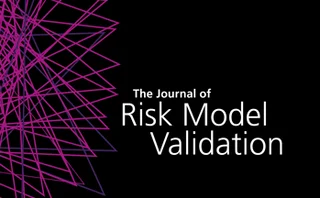Correlation
Basel Committee adjusts market risk framework
A formal 8% floor is set for correlation trading capital charge following analysis of QIS results.
Energy market correlations: have they changed permanently?
Have traditional energy market correlations changed permanently as a result of the credit bubble bursting and how will this impact trends in price forecasting and modelling? Pauline McCallion reports
Hybrid structures tempt investors
Volatile and uncertain markets have got investors thinking about diversified exposures to multiple asset classes both as yield generating opportunities and portfolio hedges. Hybrid structures, which blend discrete asset exposures into one pay-off, are…
Vol and correlation cause equity derivatives pain
Hedge funds and dealers reported to suffer losses from recent equity derivatives moves
The inflation pricing conundrum
Fear of a spike in consumer prices has created greater demand for inflation protection from a variety of participants. This has increased the need for inflation pricing and analytics tools – but it is not as simple as tweaking existing models used for…
Valid Assumptions Required: an analysis of VaR for energy markets
In this 10-part series, Brett Humphreys takes a fresh look at the widely used risk measure value-at-risk (VaR), urging risk managers to be more aware of the many assumptions that go into the calculation to produce the VaR number.
Simply does it
Structured products have been used as a scapegoat for some of the problems that led to the financial crisis. But Cater Allen, the UK private banking arm of Santander, says transparent products can regain investors’ confidence. Clare Dickinson reports
Fast correlation Greeks by adjoint algorithmic differentiation
Adjoint methods have recently been proposed as an efficient way to calculate risk through Monte Carlo simulation. Luca Capriotti and Mike Giles extend these ideas and show how adjoint algorithmic differentiation allows for fast calculation of price…
A dynamic model for correlation
Equity markets have experienced a significant increase in correlation during the crisis, resulting in exotic derivatives portfolios realising large losses. As larger correlations in downward scenarios are already implied in the index option market in the…
Now you PRDC them...
Power-reverse dual-currency notes proved a bonanza for dealers when markets were tame, but risk-managing the product has become a drain on resources and cash in recent years. As a result, some firms have decided to exit the market. Mark Pengelly…
Pricing and hedging basket credit derivatives in the Gaussian copula
The static assumptions of the Gaussian copula model have long presented an obstacle to dynamic hedging of credit portfolio tranches. Here, Jean-David Fermanian and Olivier Vigneron combine the copula with a spread diffusion to derive hedging error as…
Wrestling with correlation
The correlation risk inherent in most structured products represents an ongoing headache for manufacturers. While new regulatory proposals would affect how much risk banks keep on their books, market dynamics are at play, especially the rise in…
Big risk in Japan
RBS issued a one-year income product linked to five Japanese stocks in March 2008, paying 3% interest plus a variable capital repayment. Three of the stocks fell through their barriers, putting capital at risk and making for a capital return of only 39%
Crowd busting
The financial crisis revealed most dealers had near-identical exposures in exotic derivatives markets – whether in credit, interest rates, equity or inflation – leaving them unable to exit or hedge their positions when markets tanked. How have traders…













